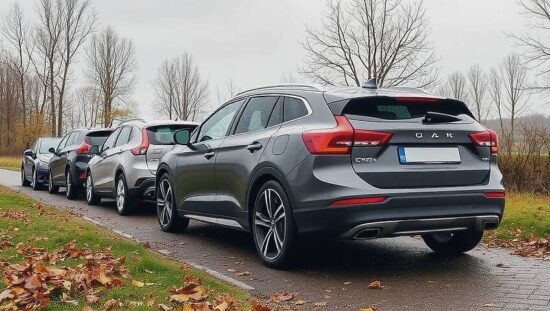It’s being discussed whether more flexibility is needed by 2035. You can discuss that, but completely abolishing the limit would be a bad idea.”
Edenhofer fears higher costs for owners of combustion engine vehicles if too many new combustion engines are allowed. “A consistent reduction in fleet limits prevents emissions from rising in the transportation sector and, consequently, the prices in the emissions market” he said. “And the German automakers should not be given false doubts about how they can succeed on the global market. By sticking to combustion engines, they won’t make it.”
Edenhofer emphasizes reliability. “This constant political stop and go is really not goal-oriented. We can’t say: We’re driving towards the wall, and it’s been going well for a long time, so we’ll just keep going” criticized the PIK director.
The cars would become more fuel-efficient, but emissions would not decrease because the transition to e-mobility is not being forced. “That’s not a sensible policy. The economy demands clear statements on the political framework conditions” said Edenhofer. “Now, it’s mainly a matter of strengthening those parts of the industry that produce 21st-century products. Combustion engines, in my opinion, will no longer be part of that.”
Reasons for Edenhofer’s warnings against repealing the combustion engine ban include not only climate change but also global industrial development. “It’s been wasted a lot of time already in the transition to e-cars. The idea of inventing a new product and, so to speak, building an iPhone on four wheels was dismissed as a fantasy” said the climate economist. “Reality is that the Chinese, who were far behind in the classical automotive industry, have caught up with us in just five years, not only in the actual electric cars, but also in battery production, software development, and networking.”
The PIK director appealed to all parties to look at China instead of the US. “The Chinese e-car strategy was not a strategy of the Greens. The innovations in the Chinese chemical industry are enormous. And behind it is no Robert Habeck” said the scientist. “Behind it is the goal of conquering the market for clean technologies and taking away the market shares of the Europeans through mass production of green-tech products. We need to discuss that, instead of looking at Donald Trump like a rabbit at a snake and therefore anxiously crying ‘back’.”
A “clever, forward-looking climate policy” is a “form of long-term wealth security.”
The fleet limits are part of the “Fit for 55” package of the European Union, which aims to redirect the EU from a path of a global warming of over four degrees Celsius to a path that would limit the climate change to a bit over two degrees Celsius. Currently, all new cars allowed in the EU can emit an average of 93.6 grams of CO2 per kilometer. The value is to be gradually reduced, and by 2035, it should fall to zero grams per kilometer.
The CDU/CSU and FDP are demanding in their election programs for the German federal election on February 23 that the zero-emission limit be repealed. “The social market economy says that engineers know better which technologies will prevail than politicians” CDU General Secretary Carsten Linnemann recently told the NOZ. “We will stop the combustion engine ban.” In the fleet limits, no specific technologies are excluded – however, it’s unlikely that zero emissions with combustion engines could be achieved on average.





